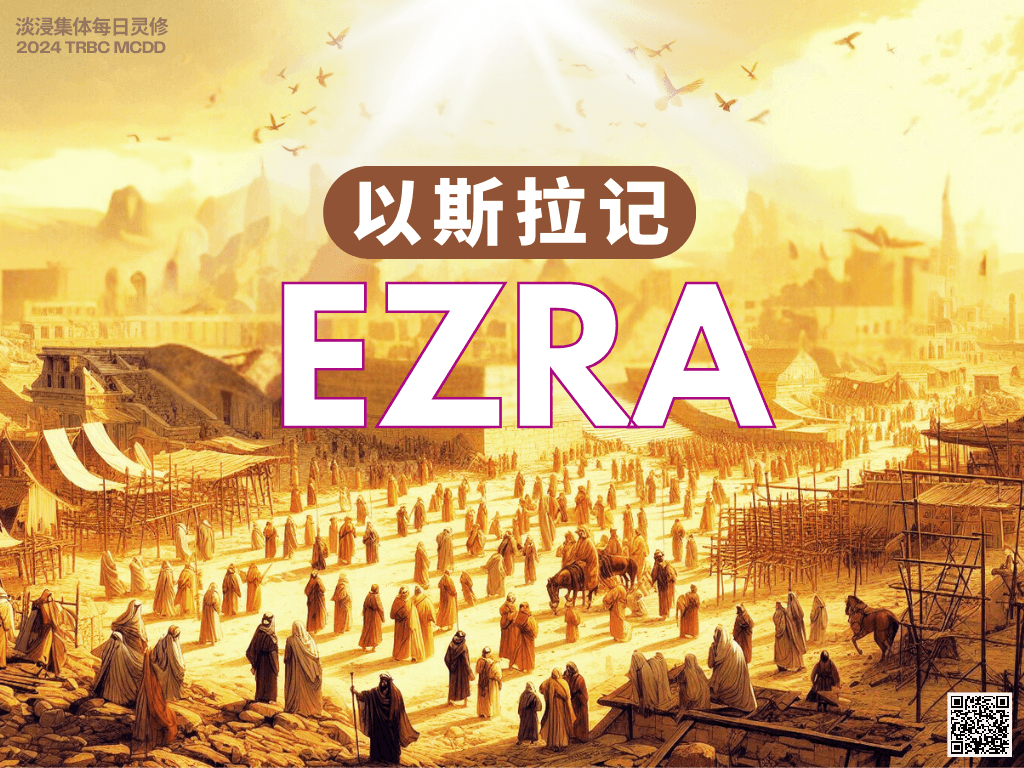Last 5 Days

A Warning to be Heeded

Click here to read Ch3
In the Ancient Near East during the OT times, the peoples believe that the rise or fall of their nations depend on the gods whom they worship. Therefore, shrines or temples are important religious establishments because these are where their deities live. These temples remind the peoples that their gods are protecting their nations and fighting for them at war.
For the Israelites, they will bring and carry the ark of the Covenant each time they enter into battle. They believe Yahweh God is the One who will fight for them. During the years of captivity, the Israelites were unable to worship God in Babylon. The Babylonians had destroyed the temple and took all the items away. Therefore, as soon as God moved the heart of King Cyrus of Persia to allow the Israelites to return to rebuild their land, they knew that their utmost task was first to rebuild the temple.
Verse 1 tells us that Jeshua the priest and Zerubbabel the governor led the Israelites to rebuild the altar. After being deported to Babylon for 70 years from their own country, the land has been inhabited by foreigners. The Babylonians have deliberately relocated and inter-mixed the different peoples from different nations that they conquered so as to diffuse the threat of an uprising. Though the Israelites believed that Yahweh had called them back, verse 3 tells us that their hearts were fearful of the enemies and foreign inhabitants who were already living in their own country. Despite all these reservations, they knew they had to push on to rebuild the temple with the altar.
The altar of burnt offering is a place for the Jews to present prayers of petition or praise to God through burnt offerings. The Hebrew word for “burnt offering” is olah. Olah means to “ascend,”. Literally, it means to “go up in smoke.” The smoke from the sacrifice ascended to God, like what Lev 1:9 says, “a soothing aroma to the LORD”. Their burnt offerings represent their prayers of petition or praise to God. Verse 5b tells us that the burnt offering to God is being made willingly and not under compulsion.
As believers living under the new covenant in Christ, we do not need physical altars to consecrate ourselves in worshipping God. We can now worship God at home, in church, at our school and workplace - wherever we are and whenever it is. Our offerings to God are now through our acts of worship to Him such as reading our bible, praying, serving Him, tithing, caring for other believers and reaching out to the unsaveds.
From the term “sin offering” itself, it tells us that the reason for the animal being sacrificed is associated with sin.
Lev 4 describes the people who sin and how the sin offering is being prepared. When a priest, community or a leader, or an Israelite sin against God, they will first choose an undefiled animal and bring it to the altar. Then the person would lay his hand on the animal’s head and the priest would then slaughter the animal. He will next skin and cut it into pieces, wash the pieces and burn the pieces on the altar of the burnt offering. Up to this stage, the procedure to prepare the animal sacrifice is similar to the burnt offering in the previous section. But there are additional steps for the sin offering. Besides pouring the blood on the floor of the altar, the priest has to also take some blood, enter the Holy Place sprinkle the blood in front of the veil and also on the altar of the incense. This altar of incense inside the holy place is different from the altar of burnt offering that is outside the temple.
The sacrifice of the animal is a ceremonial ritual to remind the people that God has forgiven their sins in accepting their sin offering. The sacrifice of the sin offering being made is to atone for the sin that the Israelite or community has committed. The One whom the Israelite has sinned against is God.
In v11, when the temple of the Lord has been rebuilt, the people sing, “For he is good, for his steadfast love endures forever toward Israel.” This verse tells us that the basis on which God forgives the sins of the people is His attribute of steadfast love. The 20 kings in northern Israel and most of the 20 kings in Southern Judah were all evil. They led the people away from God. Idolatry, oppression, violence and political revolution characterized the reign of these evil rulers and their people. But God was merciful and patient by sending prophet after prophet to urge them to return to Him. However, all their messages and warnings fell on deaf ears. The sin and evil reach its peak. Enough is enough! God raised up the Assyria to punish and destroy Israel. Later, He also allowed Babylon to destroy Judah.
We do not need a physical temple and we do not need to worry about whether we would be struck with leprosy now. This is because of what Jesus Christ has done for us. But let us not take our spiritual privilege for granted. Jesus, our great high priest had entered the heavenly tabernacle and He was also the perfect lamb of God to become our sin offering. When He died at the Cross, His blood covers and forgives all our sins once and for all. The veil that covers the Most Holy Place was torn from top to bottom. It shows and tells us that God has made all of us, His priests, that we can come before His holy presence anytime and anywhere. Let us we be sensitive to God when His Spirit convicts us of our sins. Let us live holy lives that are pleasing to Him.
PRAYER : Dear God, as you have spoken your word to us, we ask for your grace to live up your word in our lives. In areas of our faith that are lacking with regards to what we can do for you and serve you, give us the courage and help us obey us with a willing heart. In areas that are lacking with regards to what you desire us to be, help us to be sensitive to you - to confess any unconfessed sins and to reconcile with anyone whom we have hurt or who has hurt us . In Jesus name, name.
